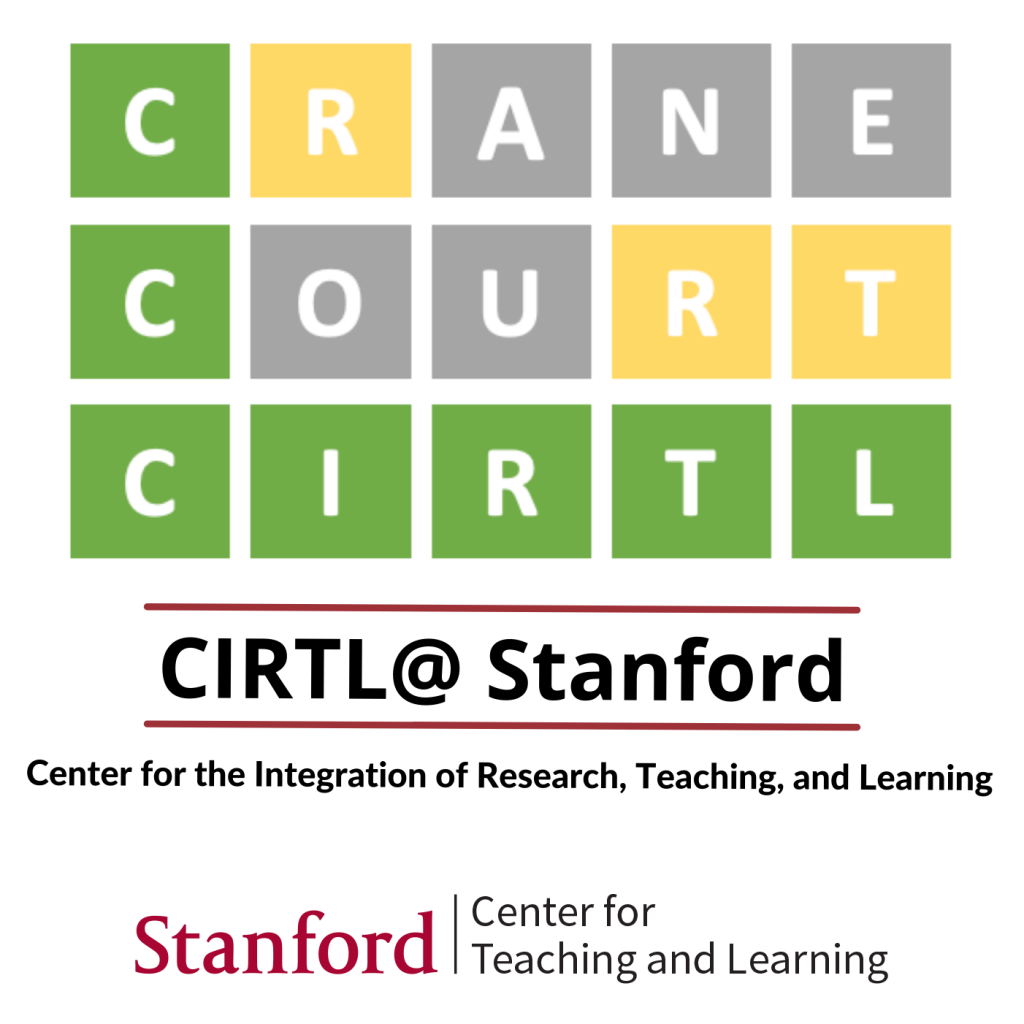
Image credit: Jamie Imam
For Jesse Streicher, a graduate student in mechanical engineering, participating in CIRTL@ Stanford—a new program that provides graduates and postdocs with career development resources, including a chance to work towards a teaching certificate and join a local learning community—was a valuable opportunity to learn from instructors at other institutions and from a broad range of disciplines at Stanford.
CIRTL@ Stanford, which aims to advance effective teaching practices as part of successful professional careers and focuses on graduate education, launched in May 2021, when the Stanford Center for Teaching and Learning (CTL) joined the Center for the Integration of Research, Teaching, and Learning (CIRTL) network.
“The combination of the massive open online course (MOOC) and local learning community allowed me to engage with evidence-based and inclusive teaching practices, workshop classroom activities with other graduate students and postdocs, lead a class session about cooperative learning, reflect on my personal teaching philosophy, and contribute towards earning a teaching certification,” Streicher said.
CIRTL’s mission is to enhance excellence in STEM undergraduate education by developing a faculty committed to implementing and advancing evidence-based teaching practices for diverse learners.
Dr. Jamie Imam, lecturer in biology and CTL lecturer consultant, who guides CIRTL@ Stanford, said, “participation in CIRTL, on-campus or through the network, is an excellent opportunity to build a community of people interested in reflecting on their teaching practices to improve student learning and cultivate inclusive environments. It is also exciting to offer teaching certificates, which recognize participants’ efforts toward professional development in teaching and learning and the value of teaching in academic careers and beyond.”
“Completion of Stanford’s new teaching certificate options not only provides a wonderful opportunity for our graduate students and postdocs but also improves their teaching practices and prepares them for future careers,” said Stacey Bent, vice provost for graduate education and postdoctoral affairs.
Since CTL joined CIRTL, 132 members of the Stanford community have created accounts on the CIRTL network website, including 41 grad students and 66 postdocs. So far, 28 people have registered an interest in completing a teaching certificate, and 7 have already started completing the requirements. From January to March 2022, a dedicated group of about 14 has been active in a robust Local Learning Community (LLC) working through the CIRTL MOOC Advancing learning through evidence-based STEM teaching. This also counts towards their teaching certificate requirements.
A high proportion of participants found the LLC exceeded their expectations. Even more thought they would use the evidence-based approaches explored in the MOOC in their own teaching. Equally important was the connection to other parts of the Stanford community interested in teaching and learning, and the diversity of the group discussions.
“Participating in the CIRTL@ Stanford LLC was a transformative learning experience,” said Cristina Rodriquez Mateo.
Participants agreed that the LLC provided accountability and an outstanding learning experience.
Taweewat Somboonpanyakul, a postdoctoral scholar in physics, said, “One of the best things about the LLC is accountability. By participating in the LLC, it held me accountable for doing weekly materials.”
Cristina Rodriquez Mateo, Stanford affiliate, neurobiology, said, “Our weekly discussions allowed me to understand better the course content. I learned different strategies, perspectives, and techniques from other participants. It was an excellent way to connect with other peers interested in teaching.”
From late June to August, CTL will run another LLC for the MOOC, Introduction to evidence-based undergraduate STEM teaching. Although the MOOC highlights STEM teaching, participants from all disciplines are welcome. One of the strengths of the community is the opportunity to exchange ideas and inspiration from different fields. Complete this form to indicate interest in joining.
CIRTL@ Stanford is also developing their Teaching-as-Research (TAR) program, which will help participants design a project and a system of mentorship to support them through their project. TAR is a large component of CIRTL, and building this culture of teaching improvement through TAR projects is a significant benefit of joining the network.
To get involved, visit CIRTL@ Stanford on the CTL website to find out how to sign up to the CIRTL network and get started on the CIRTL Teaching Certificate. Here, you can check the cross-network events feed for regular professional development events and opportunities.